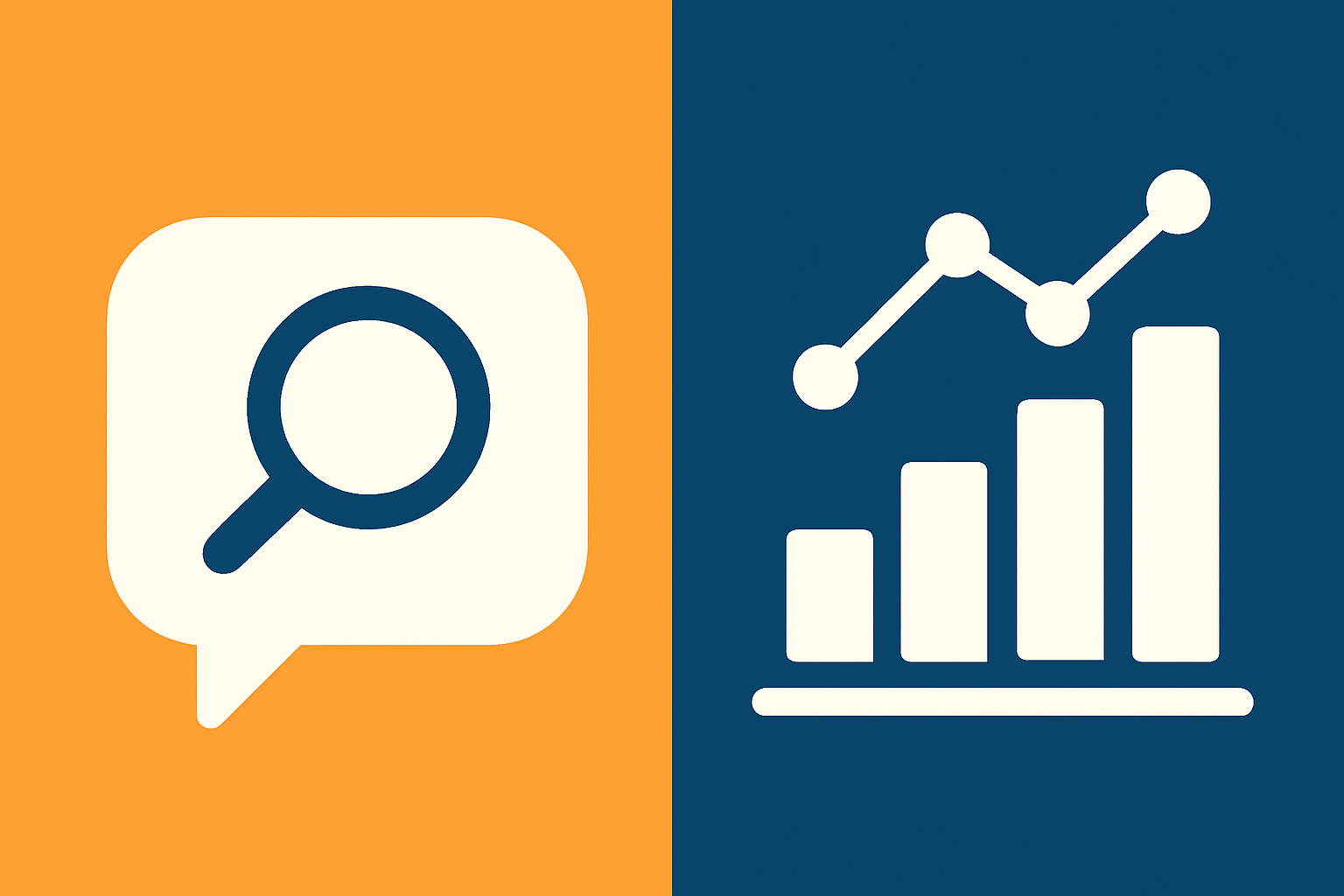When it comes to optimizing your website, choosing the right SEO tools can be the difference between confusion and clarity. If you're wondering how ChatGPT compares to SEMrush for SEO task.
ChatGPT excels at rapid, high-quality content creation and idea generation, while SEMrush provides deep, data-driven keyword research, competitor analysis, and technical SEO audits—making them complementary rather than interchangeable.
This article breaks down their strengths, limitations, and the best ways to use them together for a winning strategy.
SEMrush: The powerhouse for data-driven SEO
SEMrush remains a leading all-in-one SEO platform, designed for professionals who demand accuracy and actionable insights. Its extensive toolkit covers a broad range of needs:
- Keyword research: Access a database of over 25 billion keywords, each with detailed metrics like search volume, difficulty, cost-per-click, and user intent.
- Competitor analysis: Examine your competitors' backlink profiles, traffic sources, and ranking keywords to uncover their strategies.
- Site audits: Identify technical SEO issues, monitor site health, and receive prioritized recommendations for improvement.
- Seamless integration: Connect with Google Analytics, Search Console, Gemini, and social media channels for cohesive reporting.
Where SEMrush excels:
SEMrush transforms raw data into actionable insights. Its intuitive dashboards enable users to visualize trends, benchmark against competitors, and spot emerging opportunities. Customizable reports allow you to focus on the metrics that matter most to your goals.
The platform's regularly updated databases ensure that the information you rely on reflects the current search landscape. For agencies, large organizations, and anyone seeking a competitive edge, SEMrush provides granular data that empowers strategic decision-making.
Where SEMrush falls short:
However, this depth comes at a cost—subscriptions can be expensive, particularly for smaller businesses or freelancers. The sheer volume of features may also overwhelm newcomers, requiring a significant investment of time to master.
ChatGPT: The creative engine for SEO content
ChatGPT offers a distinct advantage: it accelerates content creation, delivering clear, engaging, and SEO-friendly copy in moments rather than hours. As an AI assistant, it supports a wide range of content needs:
- Content generation: Draft blog posts, landing pages, meta descriptions, and outlines quickly and efficiently.
- Keyword integration: Incorporate target keywords seamlessly into content, avoiding awkward or unnatural phrasing.
- Meta tags and structure: Generate optimized titles, introductions, conclusions, and even schema markup—structured data that helps search engines interpret your content for rich results.
- Idea brainstorming: Prompt ChatGPT for fresh perspectives, FAQs, and supporting points to enrich your articles.
Where ChatGPT excels:
For content teams, ChatGPT streamlines the drafting process, organizes ideas logically, and maintains a consistent tone across multiple pieces. Marketers looking to scale their output find that AI-driven writing tools like ChatGPT help maintain quality while increasing efficiency.
Where ChatGPT falls short:
Yet, ChatGPT does not provide live SEO analytics. It cannot audit technical SEO, track keyword rankings, or analyze backlink profiles. Human oversight remains essential—while the AI can suggest and structure content, it cannot verify the latest data or make strategic decisions independently.
SEMrush vs. ChatGPT: Feature comparison table
| Feature | SEMrush | ChatGPT |
|---|---|---|
| Keyword Research | Comprehensive, data-driven | Limited to suggestions |
| Competitor Analysis | Detailed, up-to-date | Not available |
| Site Audits | Automated and technical | Not available |
| Content Creation | Limited (basic templates) | Fast, high-quality, customizable |
| Keyword Integration | Manual or guided | Automated, natural integration |
| Meta & Schema Generation | Manual or with plugins | Automated markup and meta tags |
| Data Analytics | In-depth and real-time | Not available |
| Price | Higher, subscription required | Lower (or free tiers), pay-per-use |
| Learning Curve | Steep for beginners | Simple, intuitive prompts |
Best use cases: When to use SEMrush, ChatGPT, or both
Use SEMrush when you need:
- In-depth keyword research and competitor intelligence
- Technical site audits to resolve SEO issues
- Ongoing performance tracking and analytics
Use ChatGPT when you need:
- Rapid drafting of SEO-optimized content
- Generating new content ideas, FAQs, or supporting points
- Creating meta tags, titles, and structured data markup
For optimal results:
Combine SEMrush's strategic insights with ChatGPT's content generation capabilities. Let SEMrush guide your SEO direction, and use ChatGPT to bring those insights to life through compelling, well-structured writing.
Conclusion
SEMrush and ChatGPT each fill distinct roles in the SEO process—one delivers data-driven strategy, the other fuels efficient content creation. By integrating both, marketers can make smarter decisions and produce high-quality content at scale. For those aiming to stay ahead in search, leveraging the strengths of both tools is not just beneficial—it's essential.
